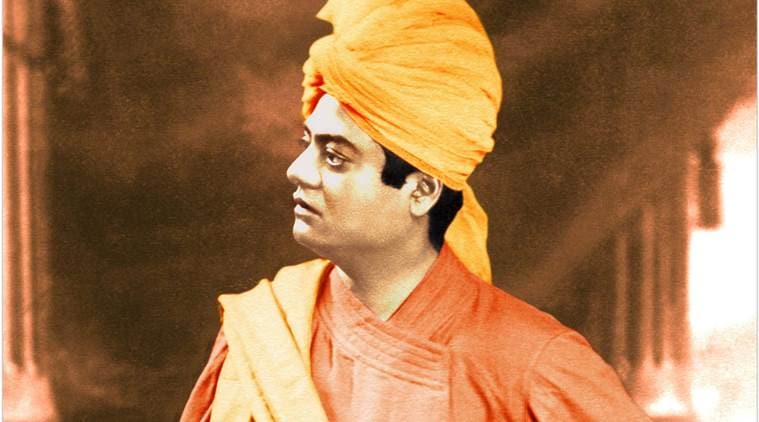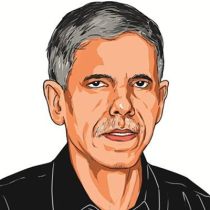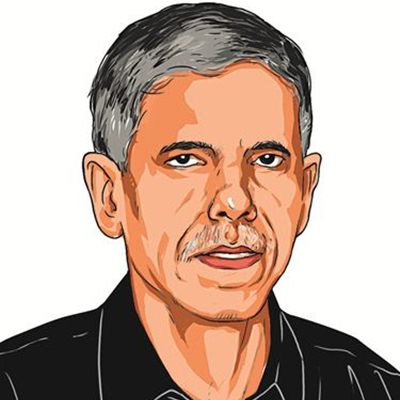The radical monk
Vivekananda needs to be understood more meaningfully. His engaged religiosity can help create a spiritually enriched, egalitarian society

Swami Vivekananda’s birthday is celebrated as National Youth Day in India. (File Photo)
As I recall Swami Vivekananda on his death anniversary, I realise the nature of the obstacles that often obstruct the possibility of a calm and subtle engagement with the radical monk. To begin with, in this crudely materialistic world where there is hardly any trace of the Upanishadic wisdom, it is not easy to be charmed by the tales of a university educated young man in the late 19th century surrendering before the spiritually musical Ramakrishna, known for his extraordinary simplicity and capability to blend folk metaphors with Vedantic wisdom.
Second, the age of instantaneity invites depthlessness, and even religiosity becomes a commodity sold by all sorts of “brand” gurus and distributed through television channels and self-help pocket books. No wonder, it is not easy to acquire the patience to feel the paradoxical life-trajectory of Vivekananda. And finally, poltics is a clever game of appropriation. As this “Hindu” monk is projected as an icon of the assertive Hindutva politics, many “left-liberals” become overtly cautious; they prefer to retain a “safe” distance from him. This is a blow to the spirit of dialogue.
Yet, he needs to be seen more deeply and meaningfully. For instance, we should not forget that Vivekananda too responded to colonialism — the way its asymmetrical cultural politics degraded the Orient, and aroused a sense of defeatism and passivity amongst the colonised. In a way, he sought to awaken the spirit of the wounded and defeated race. The celebrated speech he delivered at the Parliament of Religions in Chicago in 1893, indicates the monk’s urge to alter the discourse of colonial hierarchy, and assert the heritage of India — “the mother of religions”, and why we should feel “proud” to belong to “a nation that has sheltered the persecuted and the refugees of all religions and all nations of the earth”. The spirit of the recovery of our lost self-pride with some sort of essentialisation could also be seen in another discourse, ‘The East and the West’. While the West is “maddened with the wine of newly acquired powers”, India as a resurgent nation, the Swami felt, ought to offer something new. “Well, then, my foreigner, you are not so strong as you think yourself to be. Understand that India has strength as well, and India is still living because she has her own quota yet to give to the general store of the world’s civilization”.
Swami’s words were intoxicating. No wonder, his constant plea for strength and courage, and his metaphorical celebration of “football” and “muscles of iron, nerves of steel and gigantic will” for regenerating a nation finding its soul and uniqueness in religiosity did inspire a generation willing to restore India’s self-pride.
In this approach it is not altogether impossible to see the seeds of what these days we regard as “religious nationalism” with some sort of “Hindu pride” that led the monk — otherwise influenced by the spiritual syncretism of Ramakrishna — to think that “in spite of their tyranny and the vile language they are given to utter, we will and must go on building churches for the Christians and mosques for the Mohammedans until we conquer through love”. This “Hindu tolerance” amidst Mohammedan or Christian “invasion” seems to be inherently problematic in a religiously heterogeneous society because of its hegemonic/paternalistic tendency.
Yet, as I see, it would be naive if we fail to see the other possibility in the monk’s engaged religiosity — particularly, in what he regarded as “Practical Vedanta”. The spirit of the Vedanta — the mediation between the finite and the infinite, and the boundless energy innate in otherwise limited embodied existence — has to be rescued from the caves and the mountains, and it must awaken all of us. This faith in oneself, Vivekananda asserted repeatedly, is true religiosity, and hence “you are an atheist if you do not believe in yourself”. However, this is not “selfish faith”; instead, “it means faith in all because you are all”. This explains the other face of the monk — his social activism and compassion. Imagine the intensity of his appeal to the “would-be patriots” — “Do you feel? Do you feel that millions are starving today, and millions have been starving for ages? Do you feel that ignorance has come over the land as a dark cloud? Does it make you restless? Does it make you sleepless?” Not surprisingly, in his fiery speeches the condition of the subaltern would come up repeatedly. They need emancipatory education; and Vivekananda wanted his sanyasins to move from village to village with “a camera, a globe, some maps”, and teach a “great deal of astronomy and geography to the masses”. Is it possible to see the seeds of socialism in this sort of spiritual activism?
Well, there are critiques. Even though in a powerful essay, ‘Modern India’, Vivekananda saw the possibility of “the rising of the Shudra class” as some sort of “socialism”, and urged his countrymen to believe that “the lower classes, the ignorant, the poor, the illiterate, the cobbler, the sweeper are thy flesh and blood, thy brothers”, this reform from within may not be appreciated by the Ambedkarites for whom the eradication of the caste system means the eradication of Hinduism itself. Likewise, the feminists are likely to see a danger in the Swami’s idealisation of the woman in India as “the mother, the mother first, and the mother last”.
Yet, as I would argue, we need to see beyond “for” and “against”, and explore diverse ways of creating a spiritually enriched/egalitarian society. And in the age of totalitarian thinking and intellectual untouchability, it is not a bad idea to converse with Vivekananda as well as Marx, Ramakrishna as well as Jalaluddin Rumi.
The writer is professor of sociology at JNU
For all the latest Opinion News, download Indian Express App
More From Avijit Pathak
- In troubled times, walk with the poetAs militant nationalists create an environment of fear and violence, Tagore reminds us of the possibility of exploring India as a civilisation — not merely…
- The presence of Nehru’s absenceWe have lost what made his ‘discovery’ possible — a spirit of nuanced dialogue, decolonised cosmopolitanism and cultural syncretism...
- Gandhi, the subversiveAs people are reduced commodities and consumers, his moral engagement with self and society must be revisited as a protest ideology...








































No hay comentarios:
Publicar un comentario